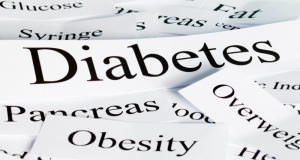Strawberry Flavonoids May Help Diabetes and Nervous System Disorders
A recent study from scientists at the Salk Institute for Biological Studies suggests that a strawberry a day (or more accurately, 37 of them) could keep not just one doctor away, but an entire fleet of them, including the neurologist, the endocrinologist, and maybe even the oncologist.
To Fix Diabetic Nerve Damage, Blood Vessels and Support Cells May...
Blood vessels and supporting cells appear to be pivotal partners in repairing nerves ravaged by diabetic neuropathy, and nurturing their partnership with nerve cells might make the difference between success and failure in experimental efforts to regrow damaged nerves, Johns Hopkins researchers report in a new study.
Intensive-Dose Statin Therapy Associated With Increased Risk Of Diabetes
An analysis of data from previously published studies indicates that intensive-dose statin therapy is associated with an increased risk of new-onset diabetes compared with moderate-dose therapy, according to a study in the June 22/29 issue of JAMA.
Diabetic Kidney Failure May Be Reversed With Low-Carbohydrate Diet
Researchers have found that by administering a low-carb, high-fat diet in mice, that diabetic kidney damage was reversed, and also uncovered an array of genes associated with kidney failure. Researchers from Mount Sinai School of Medicine have for the first time determined that the ketogenic diet, a specialized high-fat, low carbohydrate diet, may reverse impaired kidney function in Type 1 and Type 2 diabetes.
Common Test Could Help Predict Early Death In Diabetes, Study Shows
New findings out of Wake Forest Baptist Medical Center reveal that a common test may be useful in predicting early death in individuals with diabetes. The study appears in the May issue of Diabetes Care.
Pre-Meal Dietary Supplement Can Help Overcome Fat And Sugar Problems, Study...
A little bitter with a little sweet, in the form of a nano-complex dietary supplement taken before meals, can result in a substantial reduction of fat and sugar absorption in the body, Hebrew University of Jerusalem and Harvard University researchers have found.
‘Master Switch’ Gene For Obesity And Diabetes Discovered
A team of researchers, led by King's College London and the University of Oxford, have found that a gene linked to type 2 diabetes and cholesterol levels is in fact a 'master regulator' gene, which controls the behaviour of other genes found within fat in the body.
System In Brain — Target Of Class Of Diabetes Drugs —...
University of Cincinnati (UC) researchers have determined why a certain class of diabetes drugs leads to weight gain and have found that the molecular system involved (PPAR-γ found in the brain) is also triggered by consumption of high-fat foods.
Low Carbohydrate Diet May Reverse Kidney Failure In People With Diabetes
Researchers from Mount Sinai School of Medicine have for the first time determined that the ketogenic diet, a specialized high-fat, low carbohydrate diet, may reverse impaired kidney function in people with Type 1 and Type 2 diabetes.
Blueberries May Inhibit Development Of Fat Cells
The benefits of blueberry consumption have been demonstrated in several nutrition studies, more specifically the cardio-protective benefits derived from their high polyphenol content. Blueberries have shown potential to have a positive effect on everything from aging to metabolic syndrome. Recently, a researcher from Texas Woman's University (TWU) in Denton, TX, examined whether blueberries could play a role in reducing one of the world's greatest health challenges: obesity.
‘Dual Switch’ Regulates Fat Formation: Discovery Points To New Obesity And...
New research by scientists at The Scripps Research Institute and collaborating institutions has identified a key regulator of fat cell development that may provide a target for obesity and diabetes drugs.
Fatty Liver May Herald Impending Type 2 Diabetes
A recent study accepted for publication in The Endocrine Society's Journal of Clinical Endocrinology & Metabolism (JCEM) found that individuals with fatty liver were five times more likely to develop type 2 diabetes than those without fatty liver. This higher risk seemed to occur regardless of the patient's fasting insulin levels, which were used as a marker of insulin resistance.















